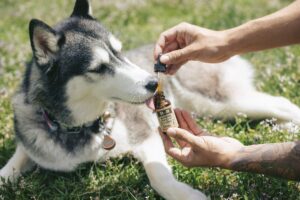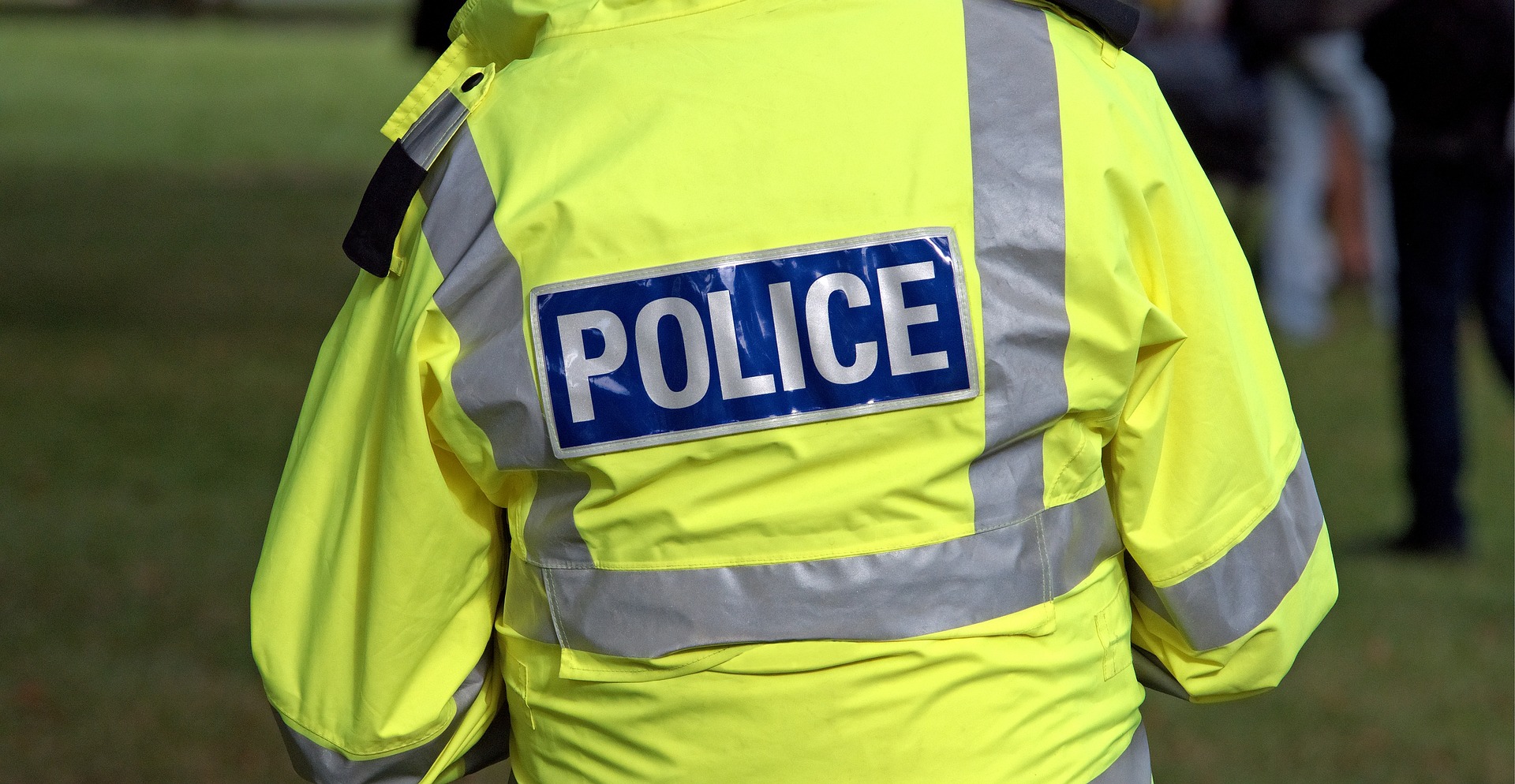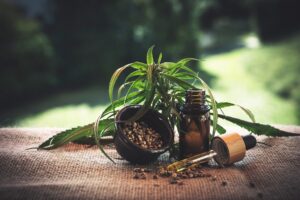For more than a year, since the passage of the 2018 Farm Bill, the US Food and Drug Administration (FDA) has been quite reserved on the subject of CBD. Then, at the end of November 2019, there was a flurry of FDA activity on the CBD front.
They updated their consumer information web page to include stronger warnings about the potential risks and unknowns of CBD. They stated that it is illegal to market CBD by adding it to a food or labeling it as a dietary supplement.
Then, the FDA also sent out 15 warning letters to CBD sellers telling them that some of their products were in violation of federal law. Meanwhile, hundreds of other CBD sellers went right on selling their products in much the same way as the companies who received letters.
These new FDA actions have lots of people wondering what direction the wind is blowing on the legality of selling and buying CBD products. Is this just a little posturing by the FDA to keep sellers from making claims about the efficacy of CBD? Or is this the FDA’s first step toward making it hard for consumers to buy CBD for personal use?
Laws Governing CBD Sales

Image by Andrew Martin from Pixabay
Let’s take a closer look at the legal status of CBD and see if we can figure it out. To get the full picture, we need to look back at the history of hemp production in the US.
Warning!! It’s not going to be pretty. This history will probably raise more questions than it answers. Yet, to be an informed consumer, it’s important to understand the complexities on the legality of CBD so you can make intelligent decisions.
CBD Was Illegal
Hemp, grown for CBD, is a very close relative of marijuana. They are both Cannabis sativa plants and their legal status has been tied together since the early 1900’s. That’s when these plants, that could be grown and used by anyone, started down the path to becoming controlled substances.
Around that time, political opinion began shifting toward more control over production, importation, and usage. Some states implemented laws to limit hemp and marijuana.
Then, in 1937, the Marijuana Tax Act1)https://www.cbp.gov/about/history/did-you-know/marijuana made the legal selling of Cannabis sativa, including hemp, excessively burdensome to the point where it became virtually illegal2)https://study.com/academy/lesson/the-marijuana-tax-act-of-1937.html. The laws were tightened further under the 1970 Controlled Substances Act3)https://www.ncbi.nlm.nih.gov/pmc/articles/PMC3839489/ when hemp and marijuana were officially classed as Schedule I Controlled Substances.
From 1971 until 2014, when the Farm Bill re-opened the door to experimental hemp growing, sales of CBD would have fallen smack dab in the illegal zone.
The 2014 Farm Bill
Amid mounting political pressure to legalize hemp and marijuana, the 2014 Farm Bill allowed for very limited production of hemp, under specific research conditions. But, advocates for the legalization of hemp and marijuana understood that this tiny opening was the signaling of bigger things to come.
Producers and growers began getting ready for huge changes in the hemp and marijuana fields (literally and figuratively). States, too, started gearing up to be ready for the full federal legalization of hemp.
State Laws
Both pre- and post-2014 Farm Bill, individual states began loosening their laws on the legality of Cannabis sativa at the state level. For example, in 2012, Colorado4)https://www.hcn.org/articles/colorados-first-legal-hemp-harvest-since-1957-is-underway formally legalized both hemp and marijuana production.
On the marijuana front, several other states allowed it for medical use. Some states decriminalized minor possessions of marijuana, making it de facto legal to use. Although hemp and marijuana are different forms of cannabis, their similarities meant that states were effectively clearing the way for CBD from hemp to be decriminalized, too.
Federal Slack for State Laws
Technically, federal laws still took precedence over state laws. So, state legalization didn’t prevent federal law enforcement agencies from enforcing the laws prohibiting the sale of any cannabis products. However, the federal government signaled, in several ways, that it was going to let the state cannabis laws stand.
For example, Congress enacted the Rohrabacher–Farr amendment5)https://en.wikipedia.org/wiki/Rohrabacher%E2%80%93Farr_amendment. This is basically a temporary pass on federal judiciary money being spent to override state cannabis legislation. It must be renewed at each spending bill and has been called into question several times. Its most recent renewal date, as of the publication of this article, was December 20, 2019.
The 2018 Farm Bill
In 2018, by way of another farm bill, the federal government lifted a ban on the production of industrial hemp. It also clarified the definition of hemp versus marijuana.
Only Cannabis sativa plants with less than 0.03% THC qualify as hemp. Anything over that level is classed as marijuana and is still illegal at the federal level.
That wasn’t a wholesale legalization of hemp6)https://www.law.com/njlawjournal/2019/06/21/how-interstate-commerce-hemp-and-the-2018-farm-bill-interact/?slreturn=20191108053901 for anyone who wants to grow it. Instead, it gave states the rights to regulate industrial hemp under certain conditions. Namely, states had to set up research programs on hemp and control the production through means such as agricultural licensing and THC testing systems.
State of the CBD Laws

Image by R+R Medicinals from Pixabay
Since the farm bills allowed for state control of hemp production, states have also started setting their own regulations on the legality of CBD7)https://frostbrowntodd.com/the-latest-hemp-laws-state-by-state-september-2019/. California specifically made adding CBD to alcoholic beverages illegal. Rhode Island and New Jersey declared CBD-derived products totally legal. Vermont allows it in maple products, but not poultry, meat, or dairy.
The list goes on with various states taking their own stances on the legality of CBD and related products. The myriad state laws are just one piece of the complicated puzzle related to whether it is legal to sell CBD. There are also federal drug laws related to CBD.
Hemp has been taken off the controlled substances list. Yet, the hemp extract CBD still falls under FDA regulation. This is because there were FDA-supervised medical trials of CBD in progress when the farm bill was enacted. As a result, CBD fell into this weird dimension of legal domain called “drugs.”
The FDA Has Authority
Substances considered to be “drugs” must undergo extensive medical trials and are subject to an expensive application process. Once approved, the drugs can be sold only under FDA regulation. Drugs are not allowed to be called dietary supplements and generally can’t be bought without a prescription.
Currently, the FDA has only given its approval for one CBD drug, used for two specific epilepsy conditions. But, does that automatically make all the other CBD products on the market illegal to sell?
Well, let’s ask the FDA:
Q: Is it legal for me to sell CBD products?
A: It depends, among other things, on the intended use of the product and how it is labeled and marketed.
This is taken direct from the FDAs FAQs on CBD. They further state:
It is currently illegal to market CBD by adding it to a food or labeling it as a dietary supplement.
Even though the FDA has maintained this same stance since the 2018 Farm Bill was enacted, they had basically stated on their website that they didn’t have the resources to go after every CBD seller. They said they would focus their efforts on products that posed a public health risk. They also said they planned to look at broader policy solutions.
Then, on November 25, 2019, the FDA posted a new communication to consumers and issued 15 CBD seller warning letters. This flurry of activity, coming just before Thanksgiving, seemed to many to represent a shift in the FDA stance on CBD products.
FDA Crackdown?
The big news was that the FDA strengthened their warning notice to consumers buying CBD products. They raised safety concerns about liver toxicity, possible drug interactions, and male reproductive toxicity. They also identified unknowns such as the impacts of using multiple CBD products on a regular basis and safety concerns for special populations and pets.
Essentially, the FDA downgraded CBD from GRAS8)https://www.nutraingredients-usa.com/Article/2019/11/26/FDA-revises-consumer-info-on-CBD-says-ingredient-is-not-GRAS-sends-15-CBD-warning-letters, or generally recognized as safe, to having potential risks. They simultaneously issued 15 new warning letters9)https://www.fda.gov/inspections-compliance-enforcement-and-criminal-investigations/compliance-actions-and-activities/warning-letters to CBD sellers that fit specific patterns.
All of the letters were targeted at CBD sellers who did one or more of the following:
- Marketed CBD as a dietary supplement;
- Marketed CBD as a drug to be used to treat specific medical conditions;
- Marketed CBD for use with special populations, such as children;
- Marketed CBD for pet use;
- Failed to provide adequate instructions for appropriate usage that a layperson could understand; and/or
- CBD was added to a food product introduced into interstate commerce.
So, does this all add up to the FDA cracking down on CBD sales? Or is the FDA just sending a signal to CBD sellers about how to market their products until more is known about CBD safety?
Best Guess on FDA Intent
Depending on who you ask, this latest round of FDA action on CBD means different things. Some analysts see this as a gearing up for more enforcement to come.
Some have claimed that this is just the FDA cracking down on sellers making fraudulent claims or selling fraudulent products. (Note: The warned sellers often disagree with that line of thinking.) Others think this is the FDA shifting more responsibility to consumers by pointing out potential risks while signaling the need for more caution to sellers in their marketing strategies.
The truth is, we don’t know yet what these latest steps by the FDA mean. Until the FDA comes through with broader policy decisions and formal guidance to sellers, it’s all just speculation.
We do know that only a very small number of letters have been issued despite the very large number of CBD sellers who are all doing the exact same thing. Additionally, past recipients of similar FDA warning letters continue to operate. However, their marketing messages and product lines have been modified.
For example, medical claims are removed from retail sites. Even blog posts that suggest medical efficacy or promote specific uses have been removed. The term “dietary supplement” is nowhere to be found in relation to CBD. Many references to “CBD” are minimized and terms like “full-spectrum hemp oil” are used instead.
So, Is CBD Legal?
Now back to the title of this post, “Is CBD Legal?” Unless the FDA takes a stronger position on enforcement, the main impediments to legal sales of CBD are at the state level. If your state allows for legal sales, that makes buying CBD much easier.
Then, at the federal level, the FDA is not regulating CBD products that are intended for topical or cosmetic use (unless they make medical claims). Presumably they are, and will remain, legal to sell and buy from a federal perspective.
TGN now carries extremely high-quality, medicinal-grade CBD herb. This bulk herb is intended for making salves, tinctures, and lotions, although you could smoke it (its quality is that high). I’ve met with the farmer personally, and it’s grown to “beyond organic” standards, although it’s not officially certified. Click here to buy medicinal-grade CBD herb.
For ingestible CBD, the answer is much less clear. The FDA has only censured a small number of CBD sellers for those 6 specific violations detailed above. Also, the warnings from the FDA are simply cease and desist letters. They aren’t putting sellers in prison simply for selling CBD.
If a nicely worded letter for improper marketing, and a chance to rectify, is the only legal consequence of selling CBD for internal use, that’s not much of a disincentive to sell edible CBD given current popularity. However, there are also several class-action suits10)https://www.jdsupra.com/legalnews/multiple-cbd-class-actions-filed-with-69120/ pending against retailers for making false claims in violation of federal law. That means there could be some significant financial consequences from civil actions for CBD sellers.
Even with questions on legality, the simple fact is that about $4.1 billion11)https://www.foodbusinessnews.net/articles/14727-fda-looms-over-growing-cbd-market worth of CBD is expected to be sold in 2019 in the US. That makes CBD big business. And, that means it will be difficult for the FDA to stop the CBD train now that it has left the station.
The Future of CBD
We live in a country with lots of absurd laws that are throwbacks to old, misguided understandings. As an example, the RESPECT act passed on November 18, 2019, just removed 11 laws related to treatment of Native Americans. One of those repealed laws allowed for Native American children to be taken from their parents and sent to boarding schools. Another allowed for involuntary labor for Native American men.
Thankfully those laws weren’t being enforced in recent times and are finally off the books entirely. Sometimes it just takes a while for legislation to catch up to the reality of law enforcement and of the way we live today. Hopefully this will be the case with CBD.
Ideally, I think most CBD buyers would prefer that the FDA just call this a dietary supplement similar to other plant-based medicines and extracts. Until that happens, though, another important question is how to make smart buying decisions amidst this CBD legal quagmire.
For more details on smart CBD buying, read this post: “3 Hidden Dangers of Buying CBD and 3 Simple Ways to Protect Yourself”
What Do You Think?
Have you run into any barriers to buying CBD? Have there been recent changes or discussion relating to your state’s CBD laws? What do you want to see in terms of federal regulation? We’d love to hear your thoughts on the legality of CBD!

Tasha Greer is a regular contributor to The Grow Network and has cowritten several e-books with Marjory Wildcraft. The author of “Grow Your Own Spices” (December 2020), she also blogs for MorningChores.com and Mother Earth News. For more tips on homesteading and herb and spice gardening, follow Tasha at Simplestead.com.
References
| ↑1 | https://www.cbp.gov/about/history/did-you-know/marijuana |
|---|---|
| ↑2 | https://study.com/academy/lesson/the-marijuana-tax-act-of-1937.html |
| ↑3 | https://www.ncbi.nlm.nih.gov/pmc/articles/PMC3839489/ |
| ↑4 | https://www.hcn.org/articles/colorados-first-legal-hemp-harvest-since-1957-is-underway |
| ↑5 | https://en.wikipedia.org/wiki/Rohrabacher%E2%80%93Farr_amendment |
| ↑6 | https://www.law.com/njlawjournal/2019/06/21/how-interstate-commerce-hemp-and-the-2018-farm-bill-interact/?slreturn=20191108053901 |
| ↑7 | https://frostbrowntodd.com/the-latest-hemp-laws-state-by-state-september-2019/ |
| ↑8 | https://www.nutraingredients-usa.com/Article/2019/11/26/FDA-revises-consumer-info-on-CBD-says-ingredient-is-not-GRAS-sends-15-CBD-warning-letters |
| ↑9 | https://www.fda.gov/inspections-compliance-enforcement-and-criminal-investigations/compliance-actions-and-activities/warning-letters |
| ↑10 | https://www.jdsupra.com/legalnews/multiple-cbd-class-actions-filed-with-69120/ |
| ↑11 | https://www.foodbusinessnews.net/articles/14727-fda-looms-over-growing-cbd-market |










COMMENTS(1)
I thought “full spectrum” as you mentioned meant that it contains both THC and CBD. Can you please clarify?